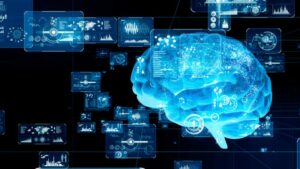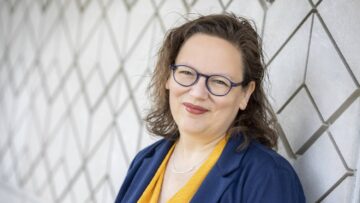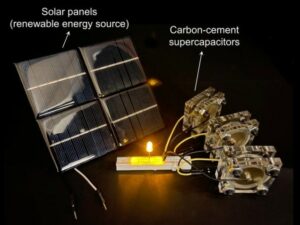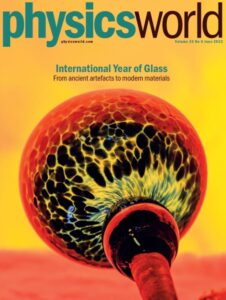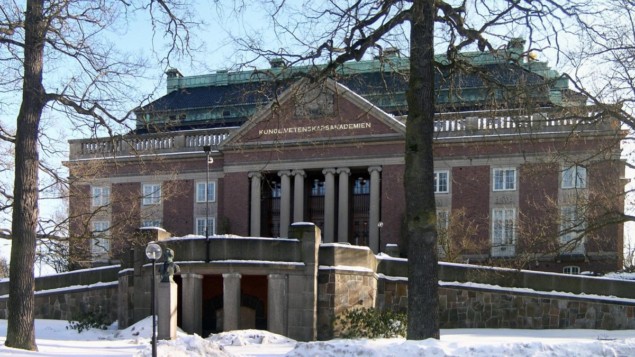
WE HOPE YOU ENJOYED OUR APRIL FOOL JOKE FOR 2024. KEN HEARTLY-WRIGHT WILL BE BACK AGAIN NEXT YEAR.
Artificial Intelligence (AI) will be used by the Royal Swedish Academy of Sciences to help choose the 2024 winners of the Nobel Prize for Physics. According to the academy, AI will help it avoid biases that are inherent in selection processes involving human judges.
“There are currently 224 Nobel laureates, but only five are women,” says Anni-Frid Lyngstad, who is a fusion physicist and chair of the Nobel Committee for Physics 2024. “We have worked with computer scientists at Lund University to develop an AI system that can evaluate nominations in a way that eliminates much of the gender and other biases that can creep into the selection process.” She adds, “the winner takes it all, so we have to be certain that the selection process is free and fair”.
Quality nominations from AI
Lyngstad adds that the academy was inspired to use AI after reading last year’s nominations. “We noticed that some of the best nominations began with, ‘Certainly, here is a possible nomination for your prize’ and we realised that AI was very good at identifying the very best in physics”.
The AI system was developed in collaboration with Mats Sundin and colleagues at Lund University. The computer scientists trained their technology using publicly available information about nominations for the prize that were made more than 50 years ago.
“We found that our large language model picked nominees that were controversially overlooked for prizes,” says Sundin. For example, it suggested that Chien-Shiung Wu should have shared the 1957 Nobel Prize for her discovery of parity violation. It also suggested that Satyendra Nath Bose should have won the 1934 prize for his pioneering work on Bose–Einstein condensation.
Unusual picks
However, Sundin did concede that their system put out the occasional nonsensical winner. “It said that Pippi Longstocking should have won the 1953 prize for her work on super-strong materials, but we are confident that we have fixed that problem”.
Not everyone is convinced though. Agnetha Fältskog of the University of Borås points out that artificial intelligence is notorious for reinforcing biases in its training data. The mathematician adds, “The system was trained using nominations that were mostly made by white men, so I am very concerned and disappointed that the academy has chosen to use it”.
The 2024 selection process began earlier this year when AI was used to analyse the hundreds of nominations that were received by the 31 January deadline. It first created a shortlist of 20 potential laureates for further consideration. The large language model is now being used to write detailed reports about the shortlisted nominees. These reports will then be used by the committee to make its final decision, which will be announced on the first Tuesday of October.
Lyngstad is adamant that the final decision will be made by committee of human experts and not by a computer. “Certainly, here is a guarantee that AI will not pick the winners,” she told Physics World.
- SEO Powered Content & PR Distribution. Get Amplified Today.
- PlatoData.Network Vertical Generative Ai. Empower Yourself. Access Here.
- PlatoAiStream. Web3 Intelligence. Knowledge Amplified. Access Here.
- PlatoESG. Carbon, CleanTech, Energy, Environment, Solar, Waste Management. Access Here.
- PlatoHealth. Biotech and Clinical Trials Intelligence. Access Here.
- Source: https://physicsworld.com/a/artificial-intelligence-will-help-pick-nobel-prize-for-physics-winners/
- :has
- :is
- :not
- 1934
- 20
- 2024
- 224
- 31
- 50
- 50 Years
- a
- About
- Academy
- According
- Adds
- After
- again
- ago
- AI
- All
- also
- am
- an
- analyse
- and
- announced
- April
- ARE
- artificial
- artificial intelligence
- At
- available
- avoid
- back
- BE
- began
- being
- BEST
- biases
- Building
- but
- by
- CAN
- certain
- Chair
- Choose
- chosen
- collaboration
- colleagues
- committee
- computer
- concerned
- confident
- consideration
- convinced
- created
- Currently
- data
- deadline
- decision
- detailed
- develop
- developed
- DID
- disappointed
- discovery
- Earlier
- eliminates
- evaluate
- everyone
- example
- experts
- final
- First
- five
- fixed
- For
- found
- Free
- from
- further
- fusion
- Gender
- good
- guarantee
- Have
- help
- her
- here
- his
- hope
- HTTPS
- human
- Hundreds
- i
- identifying
- in
- information
- inherent
- inspired
- Intelligence
- into
- involving
- issue
- IT
- ITS
- January
- jpg
- judges
- language
- large
- Last
- made
- Main
- make
- materials
- max-width
- Men
- model
- more
- mostly
- much
- next
- nobel prize
- nomination
- nominations
- nominees
- notorious
- now
- occasional
- october
- of
- on
- only
- Other
- our
- out
- parity
- physicist
- Physics
- Physics World
- pick
- picked
- Pioneering
- pioneers
- plato
- Plato Data Intelligence
- PlatoData
- points
- possible
- potential
- prize
- prizes
- process
- processes
- publicly
- put
- Reading
- received
- Reports
- royal
- Said
- says
- SCIENCES
- scientists
- selection
- shared
- she
- shortlist
- shortlisted
- should
- So
- some
- Swedish
- system
- takes
- Technology
- than
- that
- The
- their
- then
- These
- this
- this year
- though?
- thumbnail
- to
- told
- trained
- Training
- Tuesday
- university
- use
- used
- using
- very
- VIOLATION
- was
- Way..
- we
- were
- when
- which
- white
- WHO
- will
- winner
- winners
- with
- Women
- Won
- Work
- worked
- world
- write
- wu
- year
- years
- You
- Your
- zephyrnet


